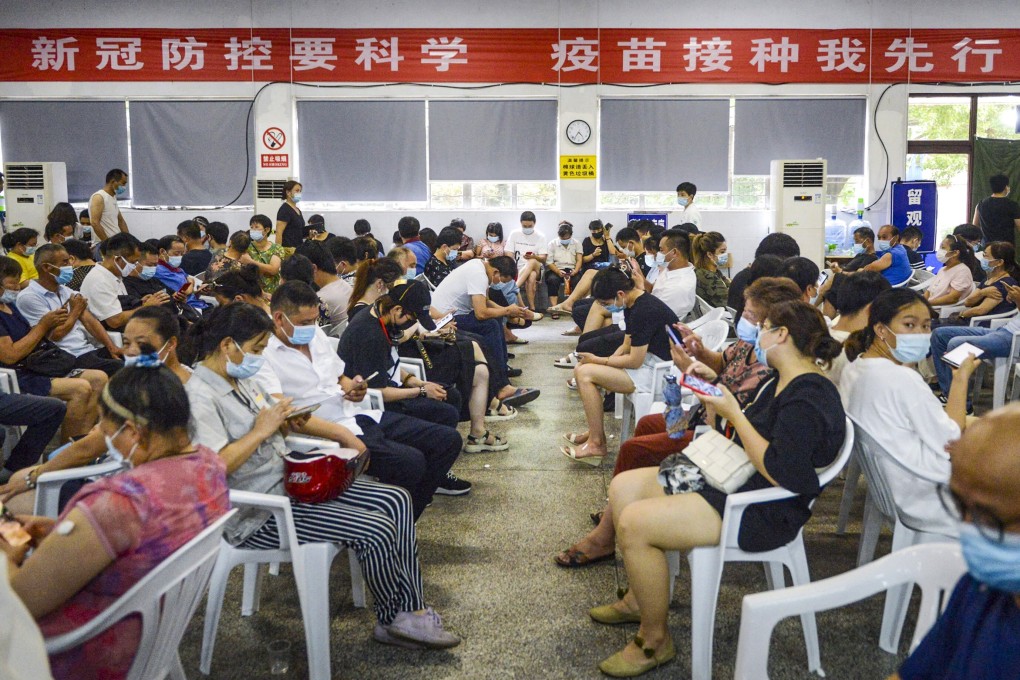Coronavirus: China recommends booster shots for high-risk groups
- More research needed to see if extra shots should be given to the general public
- Additional doses offer greater protection even though neutralising antibody levels fall after six months, health official says

Citing studies by Sinopharm and Sinovac, Zheng Zhongwei, head of medical science development at the NHC, said a booster shot would offer greater protection even though the levels of neutralising antibodies – an indicator of protection induced by vaccines – still dropped six months after the booster was given.
The studies observed a rapid rise in the levels of antibodies three days after the third shot was given, rising to 15-30 times the original level by 14 days. Levels dropped after six months but still exceeded the peak of the two-dose vaccination.
“From this perspective of immunogenicity, we feel that the protection can be enhanced with the booster shot,” Zheng said.

02:37
China under pressure as Nanjing airport coronavirus cluster spreads to 15 cities